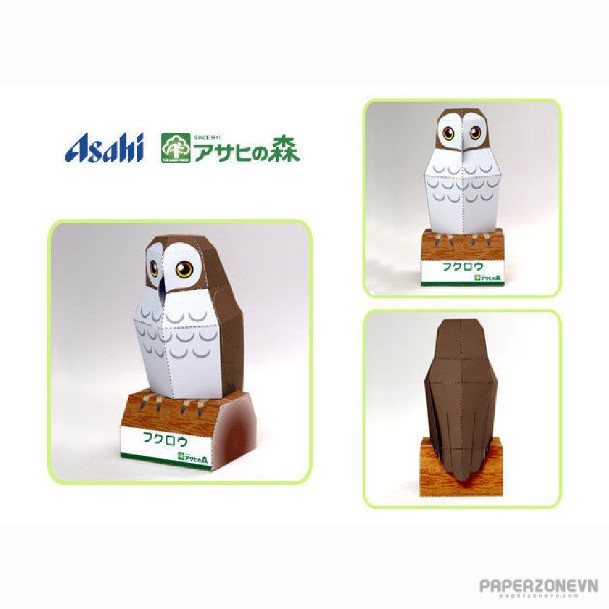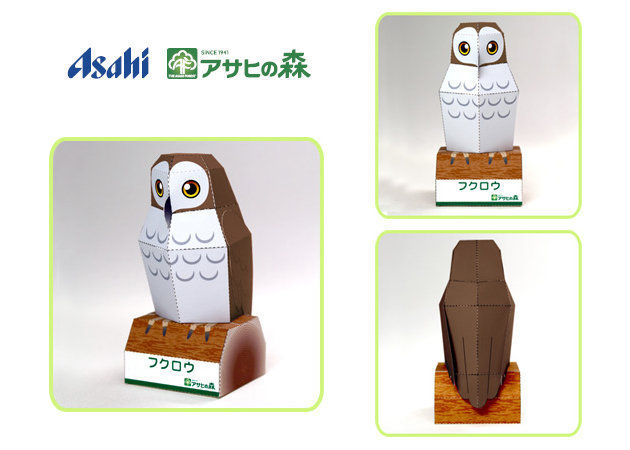- Thumbnail
-

- Resources
- asahibeer.co.jp/csr/eco_v/env/forest/papercraft/index.html
- Author
- Asahi
- Printed File Format
- Page(s)
- 2
- Instruction Format
Owl Chibi (Cú) Papercraft
Owls can rotate their heads and necks as much as 270°. Owls have 14 neck vertebrae compared to seven in humans, which makes their necks more flexible. They also have adaptations to their circulatory systems, permitting rotation without cutting off blood to the brain: the foramina in their vertebrae through which the vertebral arteries pass are about 10 times the diameter of the artery, instead of about the same size as the artery as in humans; the vertebral arteries enter the cervical vertebrae higher than in other birds, giving the vessels some slack, and the carotid arteries unite in a very large anastomosis or junction, the largest of any bird's, preventing blood supply from being cut off while they rotate their necks. Other anastomoses between the carotid and vertebral arteries support this effect

Owls can rotate their heads and necks as much as 270°. Owls have 14 neck vertebrae compared to seven in humans, which makes their necks more flexible. They also have adaptations to their circulatory systems, permitting rotation without cutting off blood to the brain: the foramina in their vertebrae through which the vertebral arteries pass are about 10 times the diameter of the artery, instead of about the same size as the artery as in humans; the vertebral arteries enter the cervical vertebrae higher than in other birds, giving the vessels some slack, and the carotid arteries unite in a very large anastomosis or junction, the largest of any bird's, preventing blood supply from being cut off while they rotate their necks. Other anastomoses between the carotid and vertebral arteries support this effect

Sponsored: Google Advertising
